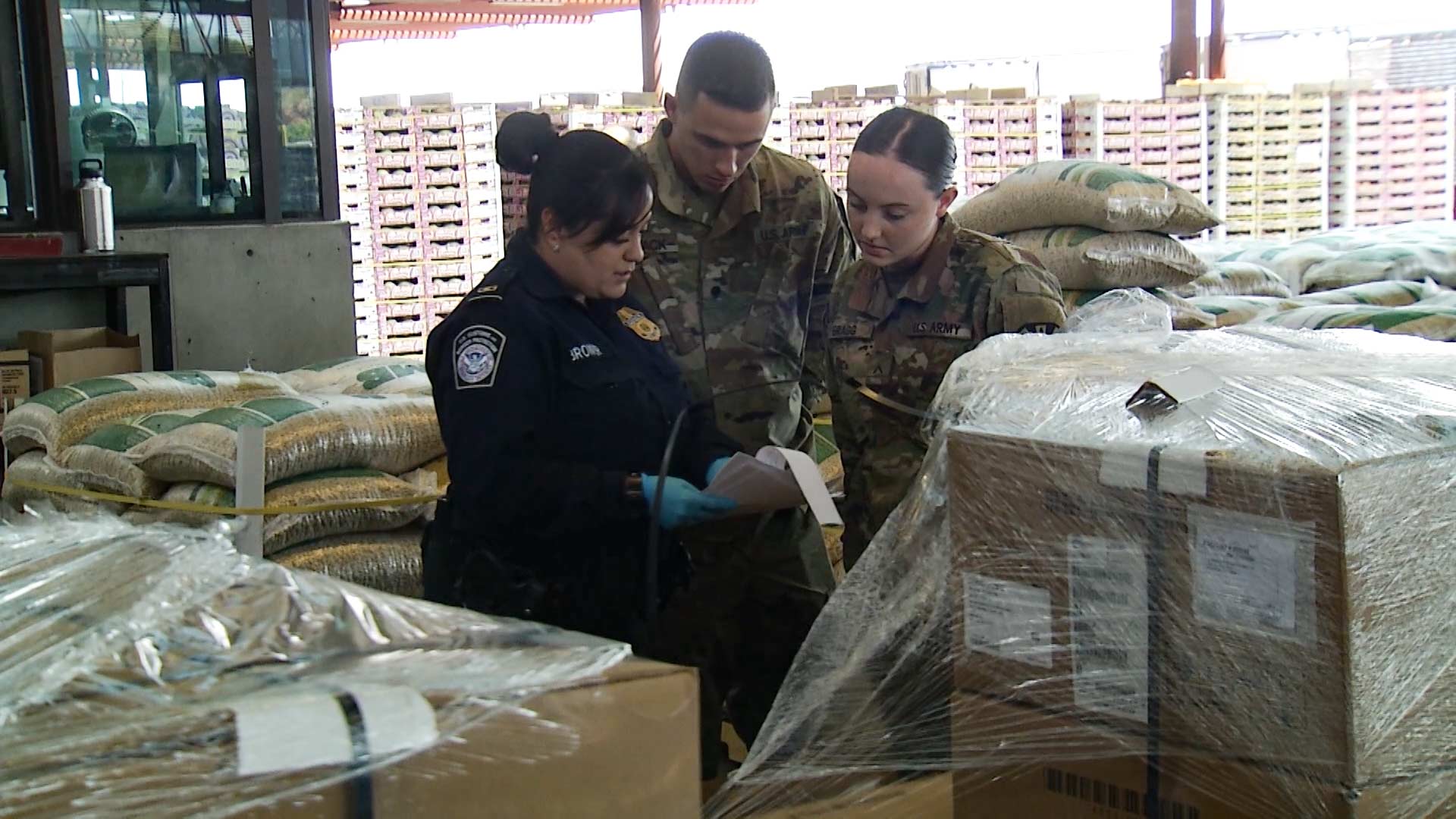 National Guard troops receive inspection training from a Customs and Border Patrol official at the Mariposa Port of Entry in Nogales, Arizona on August 1, 2018.
National Guard troops receive inspection training from a Customs and Border Patrol official at the Mariposa Port of Entry in Nogales, Arizona on August 1, 2018.
The Buzz for March 1, 2024

Political rancor and an influx of migrants at the US/Mexico border have led multiple border states to propose or enact legislation that is aimed at immigration and border security in recent months.
Such moves are not new, especially in Arizona where one piece of legislation became a precedent-setting case in the U.S. Supreme Court.
"Article One of the Constitution grants the Congress the power to establish 'a uniform rule of naturalization,'" said Lynn Marcus, a professor at the University of Arizona's James E. Rogers College Law and director of its Immigration Law Clinic. "And that's presumably because it would be chaos if individual states could set their own rules as to who's eligible for US citizenship. But since the late 1800s, the courts have also found that the federal government has to be able to set and enforce immigration laws and policies generally because that's inherent in national sovereignty."
That need for uniform law has been the basis of keeping immigration and border law enforcement in the hands of the federal government. Marcus said courts have drawn three distinct lines that state and local governments cannot cross. The first is that they cannot set standards for who can come in and how long they stay.
"That's the exclusive domain of the of the federal government. For example, there was an ordinance in Texas that required landlords to review documents to determine immigration status before renting to someone and the Federal Court found that that was an unlawful regulation of immigration because it would keep some legal residents from being able to rent."
The second disallows states and municipalities from making rules that reach into areas that already have federal rules. A prime example, Marcus said, is Arizona v. United States, the case that put SB 1070 before the Supreme Court.
"Arizona wanted to pass a law making it a crime for certain people to work without authorization. And Congress in 1986, had already looked at all the policies [and passed] a comprehensive scheme of employer sanctions rather than worker sanctions."
Lastly, local governments cannot make rules that conflict with federal law.
"I think a good example, there is a new law in Texas that criminalizes illegal entry into the state and requires state judges to issue deportation orders. And the lawyers in that case recently argued in district court, and the judge said, 'Look, I'm sympathetic to the state's concerns about the surge of migrants crossing the border, and resources for the state, but state court judges are going to have to decide whether to follow state law, which doesn't have any provision for asylum and other kinds of defenses to deportation, or federal law, which does.'"
After our interview, a district court judge put that law on hold, saying Texas is unlikely to be able to establish that the law is constitutional.
Marcus said there are some instances where states can provide assistance with federal permission, but most other moves will be considered overstepping.
"If what you're gonna try to do is not politically grandstand but actually solve problems, it's gonna have to be done on the national level with comprehensive solutions that look at the mismatch of our visas and our employers' needs and root causes and the whole rash of things that these state provisions don't take into account."
The ability for states to offer federally-approved assistance is something that has happened in the past and has been beneficial, according to Victor Manjarrez Jr.
He is a former chief patrol agent for the U.S. Border Patrol's Tucson and El Paso sectors and is now the director of the Center for Law and Human Behavior at the University of Texas El Paso.
"It is not only helpful for the agents but I think it's helpful, generally, to the bigger purpose, right? The largest deployment of the National Guard was during a time frame called Operation Jumpstart. It was I think 2006-2007. And so at that time, it was really close coordination between the Department of Homeland Security and the National Guard."
That coordination meant Manjarrez could ask that units with certain skills be deployed. He specifically asked for guardsmen who had surveillance, mechanical, and transportation training.
"When we see a Border Patrol agent out in the field, what we don't see is the logistical requirement that's behind, right? And that logistical requirements can be in everything from transportation, to someone watching and caring for detainees, someone processing the detainees. And so when you have National Guardsmen that come out and are deployed in those type of activities, it relieves a Border Patrol agent that was doing it and put some back out in the field. And so that is the very big benefit."
Manjarrez said talk of collaborating between other agencies and the Border Patrol often came up short, but he knew working together was successful when it became talk of coordination.
"[Communication] really is key, you know? If you're gonna have a party, you might as well organize it a little bit."




By submitting your comments, you hereby give AZPM the right to post your comments and potentially use them in any other form of media operated by this institution.